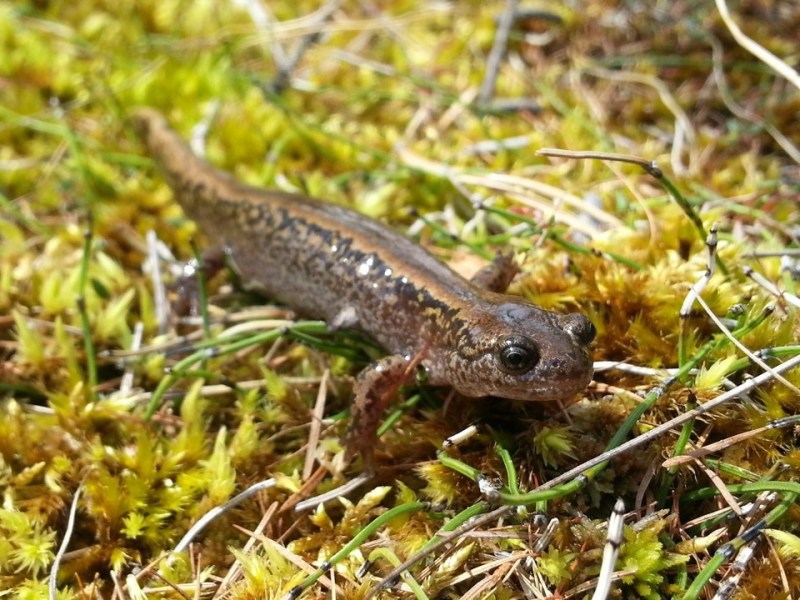The world is in the midst of the sixth major extinction in its history. The dangers to every inhabitant of the planet are clear. Something needs to change. Action is needed.
Helen Meredith is the executive director of the Amphibian Survival Alliance. She set aside some time to answer the Big Question.

What is the biggest question facing your field?
How can we mitigate a global extinction crisis for amphibians (frogs, toads and caecilians) and restore threatened amphibian populations globally?
Why is it significant?
More than 40 percent of amphibians are threatened with extinction and more half of all species are declining. Unless we build the resources, desire and momentum to combat global amphibian extinctions, we are set to lose hundreds (if not thousands) of species over the coming decades. This means we will lose the countless roles amphibians play in ecosystems around the world that sustain countless other species, their profound potential value to human medicine, and their many other priceless contributions to enriching life on Earth—not least their beauty, diversity and incredible characteristics that have emerged over millions of years of evolution.
Furthermore, the factors that threaten amphibians threaten all life on Earth, including our own species. Amphibians have been a vanguard of the much-feared sixth mass extinction since the origin of life on our shared planet. If we cannot act to prevent their demise, we will struggle enormously to prevent further losses of global species and ecosystem functions. It is not too late to make different choices to ensure future generations live in a world full of biodiversity, and all of the wonderful and essential benefits that this imparts.


Where is the answer likely to come from?
We need to work together to protect and celebrate amphibians globally. Amphibians are often overlooked and undervalued, despite being ancient and remarkable, with a great many fascinating behaviours. I have spent my career in amphibian conservation helping to raise awareness of all the wonderful species out there – from cave-dwelling olm salamanders that hunt using electrosensitivity and can survive for more than 10 years without food, to throat- brooding Darwin’s frogs where males protect developing young within their throat sacs and regurgitate live froglets. The Siberian salamander can withstand being frozen down to a temperature of minus 50 degrees Celsius (minus 58 degrees Fahrenheit) and axolotls can regrow entire limbs. These are just a couple of examples from the weird and amazing world of amphibians. The more you know about them, the stranger and more compelling they become.
Fortunately, there are many organisations around the world that share my passion for amphibians. The Amphibian Survival Alliance is bringing these global advocates together to raise awareness of the plight of amphibians and deliver conservation actions to ensure their future. Alongside our communications work (including regular publications and media contributions illuminating the important work of our partners), ASA is focusing on two key priorities.
Firstly we are a member of the Key Biodiversity Areas Partnership, acting to ensure all Critically Endangered species are protected within locally appropriate and well-managed conservation areas to prevent extinctions. Secondly, we support work to understand and mitigate infectious diseases that are driving amphibian extinctions globally. Furthermore, through building a strong partnership and supporting the knowledge products necessary to coordinate global action for amphibians, we hope to give amphibians the future to which they are wholly entitled.
For more formation visit the Amphibian Survival Alliance or follow on social media: Facebook: @amphibiansurvivalalliance; Twitter: @amphibians.org; Instagram: @amphibiansurvivalalliance
IMAGE SOURCE: Creative Commons
The Scientific Inquirer needs your support. Please visit our Patreon page and discover ways that you can make a difference. http://bit.ly/2jjiagi. Alternatively, to make a one time $10 contribution visit our Support page.
